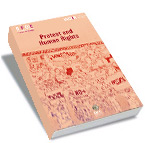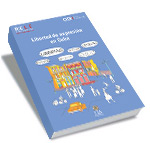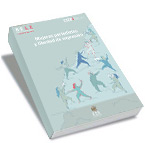Quote of the day
Every person has the right to freedom of investigation, of opinion, and of the expression and dissemination of ideas, by any medium whatsoever.
American Declaration of the Rights and Duties of Man
Office of the Special Rapporteur for Freedom of Expression
|
The Special Rapporteur for Freedom of Expression publishes a special report on the situation of press freedom in Haiti May 9, 2025 Washington, D.C.- The Special Rapporteur for Freedom of Expression (SRFOE) of the Inter-American Commission on Human Rights (IACHR) publishes its special report on the situation of press freedom in Haiti, a State that, according to its assessment, faces the most serious and persistent challenges to the exercise of journalism in the hemisphere. The report examines the evolution of the guarantees and conditions affecting the practice of journalism, highlights its fundamental role in overcoming the country’s multidimensional crisis—including the holding of elections before February 7, 2026—and formulates recommendations to the authorities to protect and strengthen press freedom. The set of facts documented between 2018 and 2025 by this Office paints an extremely alarming picture for media professionals in Haiti: deliberate killings; armed attacks against media outlets; enforced disappearances and kidnappings; internal displacement and forced exile; as well as attacks against those covering demonstrations and social protests. The convergence of these patterns of violence against the press, exacerbated by persistently high levels of impunity, leads the Special Rapporteurship to conclude that the country, and especially areas where the State has lost its monopoly on force, is becoming a silenced zone without precedent in the Americas. The report also posits journalism as an essential tool for confronting and ultimately overcoming the multidimensional crisis affecting Haiti, given its critical role in exposing human rights violations and high levels of impunity; ensuring accountability of both national and international authorities; fostering informed public debate; and safeguarding free, fair, and transparent elections necessary to restore democratic order and the full functioning of the State. In this context, the document is particularly addressed to the new institutional and security actors in the country—such as the Presidential Transition Council (CPT) and the UN Multinational Security Support Mission (MSSM)—urging them, with the support of the international community, to establish conditions that enable the free and safe practice of journalism. This Office trusts that this report will contribute to documenting the various violations of press freedom and related rights committed over the past seven years, by recording the crimes committed, identifying the victims, and assessing the current status of investigations. It also hopes that the report will underscore the strategic value of journalism in the current context and its essential role in understanding and seeking solutions to the multidimensional crisis, encouraging national and international actors to adopt firm, coordinated, and timely measures. The Office of the Special Rapporteur for Freedom of Expression (SRFOE) is an office created by the Inter-American Commission on Human Rights (IACHR) to encourage the hemispheric defense of the right to freedom of thought and expression, considering its fundamental role in the consolidation and development of the democratic system. R096/25. |
Office of the
Special Rapporteur for Freedom of Expression
Inter-American Commission on Human Rights
1889 F St. NW
Washington D.C. 20006
USA
Telephone: +1 202 370 0816
E-mail: cidhexpresion@oas.org
Banner: Design by Miki Fernández
Official Photo: Juan Manuel Herrera, OAS






